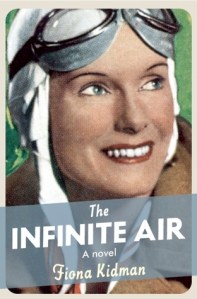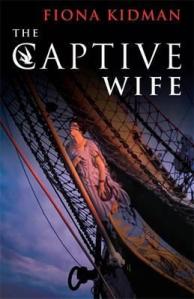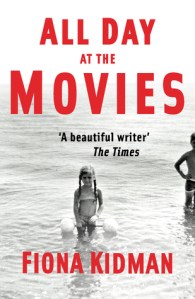Dame Fiona Kidman is one of New Zealand’s most prolific and highly acclaimed authors. Her work has recently been brought back to light, published in the UK by Gallic Books.
In 2016, I read her excellent novel on the life of the NZ aviator and Queen of the Skies, Jean Batten, The Infinite Air and later the same year picked up a copy of the historical fiction novel The Captive Wife, a tale of the first European woman to settle in the South Island of New Zealand, a whaler’s wife who underwent a dramatic ordeal, that Kidman imagines between the pages of her compelling novel.
 Songs From the Violet Café novel begins and ends with chapters set in 2002, with independent events that take place on the same night, near each other. In Part One, an old boat laden with personal items, private notes and other paraphernalia is set alight and pushed out onto the lake, providing a spectacle for the family and their friends gathered for the occasion.
Songs From the Violet Café novel begins and ends with chapters set in 2002, with independent events that take place on the same night, near each other. In Part One, an old boat laden with personal items, private notes and other paraphernalia is set alight and pushed out onto the lake, providing a spectacle for the family and their friends gathered for the occasion.
One puts in a bundle of letters; her sly smile and the nod of appreciation from the other women tell him that they are love letters. Another adds a calendar for what she says was a very bad year, someone else a stained quilt, another some yellowed school books. His wife’s best friend whispers to her son that it’s his last year’s school reports and he need never see them again.
The last Part sees nearly all the characters who worked in the Violet Café during 1963-64 on the same shores of that stretch of water, Lake Rotorua in New Zealand. They have come together again, all these years later, to commemorate the life of their patron, Violet Trench, owner.
In Part Two, it is 1943 and a boat rows across the lake with a woman and a young child. The woman is Violet and she is bringing a boy across to her first employer Hugo, a man whose wife she helped nurse through her last days before death. Now Hugo is married to Ming, a Chinese immigrant who also lost her husband, he has helped her raise her two sons and the one they have together.
‘Tell her,’ said Ming through her son, ‘that children are without price here. They are not for trade. ‘ She took the money Violet had given her earlier, and laid it on the table beside the unwashed plates.
The woman’s hand flew to her mouth. ‘I can’t take him back.’ she said.
The two little boys had thrown their arms around each other, nuzzling with tender blind-eyed butting as they shifted in their sleep.
‘The boy stays,’ Ming said, ‘but we do not buy.’
In Part Three we meet all the girls who will come under Violet’s wing, it’s 1963 and we encounter the girls through their mother’s, beginning with Jessie. About to turn eighteen, she is living in Wellington with her mother, stepfather and half-siblings, it is the day before she will leave her law studies and family behind, boarding a bus for a random northern destination, which happens to be Rotorua. Searching for food she will stumble across the café and be taken in by Violet.
Everything her mother did had a cost. Jessie didn’t know why she hadn’t seen this before. But now she understood in an instant that this was how it had always been, ever since her mother married Jock. If it hadn’t been for her, perhaps her mother might have married better the second time around. Jock, she could see, was the price her mother paid for being alone and having a child, for not always living as a war widow.
We meet Sybil and her daughter Marianne, whom Jessie shares a room with at a boarding house for a while, discovering the strange relationship this pair have, the mother sabotaging her daughter’s attempt to create a stable life for herself. Marianne also works at the café.

We meet Belle, a pastor’s daughter, who is to be married to Wallace. He’s saving for a deposit on their house and he and Belle’s father decide Belle needs a job to contribute to household expenses.
Hal and Wallace went to see the woman who ran the café. The woman was all lip and very impudent in Hal’s opinion, although Wallace rather liked her. I make the rules, she told them, and Belle will obey what I say when she comes to work at the Violet Café; she could worry about their rules when she went home. They waited for her to show them around but she didn’t, just waiting for their answer with a take it or leave it look in her eye.
There’s Ruth and Hester, the daughter she had at forty-six years of age.
A girl of quality, her mother believed. She expected her to go far. Hester would win scholarships and go to university, she too would stay clear-skinned and virginal. Instead, Hester grew more quiet and shy as one year followed another. When she was fifteen her frothy brown hair became mysteriously streaked with grey, as if she was already old.
Part Four are the years they all work in the café, where the lives of these young women under the tutelage of Violet come together, where friendships are forged, romances flourish and temptations indulged. Their relations and futures culminate in one eventful night, which will change the trajectory for nearly all of them, their coming-of-age period reaches a climatic point, from which they each will embark on the adult lives that will claim them.
Nobody called out or said goodnight or goodbye. Inside the café the phone was ringing but nobody answered it.
By Part Six it is 1980 and Jessie is in Phnom Penh working as a foreign correspondent. She has left New Zealand and is based in London, but spends most of time working in conflict zones, travelling from place to place following the scent of a story. She has left her past behind her, but will cross paths with some of those people she knew from the days at the Violet Café, learning more about what happened on that last night. The shadow of Violet still hangs over her and she find herself drawn once more into her realm, under her instruction.
It is an evocative novel, which brings that era of a small lakeside NZ town alive, showing how the young women of the time were almost stifled under the expectations of their mothers, and found a place of respite in the café run by the unorthodox matriarch Violet. For some, it wasn’t enough of a distance to rid themselves of guilt, they would leave, going far from home, far from their cultures, creating new personas to remove all trace of the past, one that despite their attempts, never really left them.
Another of Fiona Kidman’s books has recently been published in the UK, a companion novel which delves deeper into the life of Jessie’s mother Irene, from the time of her becoming a war widow to her marriage to Jock and the lives of her children, spanning the years from 1952 to 2015. You can read a review of it by Susan, over at A Life In Books.
Note: Thank you kindly to Gallic Books for providing a review copy.




Great review, Claire, and thanks for the link. I hadn’t realised that Jessie’s story was part of this novel. I must move it further up my wishlist.
LikeLiked by 2 people
I remember your review of The Infinite Air. All of the books you’ve described here sound good. The Captive Wife especially appeals to me because of the historical aspect of it. It might also make a good book for Literary Wives!
LikeLiked by 2 people
I can’t wait to read this. I interviewed Fiona for the Belfast Book Festival a few years back and she was as lovely as she is talented.
LikeLiked by 2 people
Fiona Kidman is one of my favourite NZ authors, and The Captive Wife is my favourite of all her books. I read it before starting my blog so I don’t have a review of it online, but it’s just brilliant. I liked it so much I bought a second copy after I lent mine to someone and never got it back…
LikeLiked by 2 people
I used to often do with that with favourite books, lend them out but knowing they were unlikely to come back and pick up another if I came across it, thankfully Kidman’s book being republished means they may be more accessible, as sometimes books from down under go out of print quickly. I wonder if The Captive Wife is going to be published in the UK, I hope so, it would be great to see a reissue of it.
LikeLiked by 1 person
This author is new to me, and with a partner from NZ she’s of particular interest. I look forward to trying some of her books 🙂
LikeLiked by 1 person
Pingback: This Mortal Boy by Fiona Kidman – Word by Word